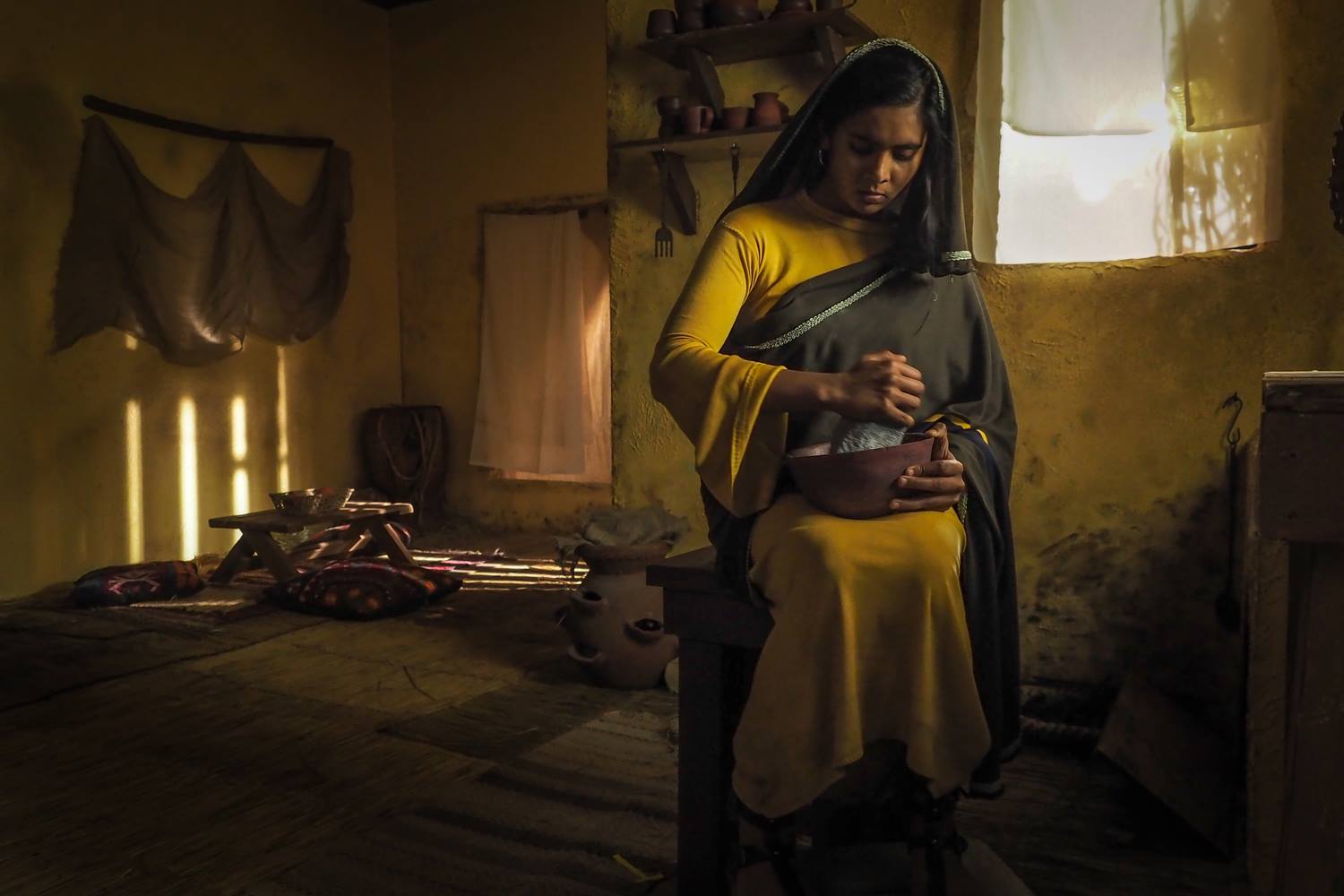Samuel’s success rests upon Adele Noronha’s performance as Hannah, Samuel’s mother, and its deftly written dialogue.
Although I was not very familiar with the biblical story of Samuel prior to watching this film, the story itself – someone asks for something immediately, promises something later in return, and comes to regret that decision – was not foreign to me. It’s a tried and true structure, but that does not always mean it’s made for success. In order to make this well-tread story feel fresh, writer-producer Jonathan Bryden and director Arthur de la Rambelje focus on the specifics. Instead of falling back on cliché period phrases, they modernize. This makes it easier to relate.
This is why Noronha’s performance is important. People who lived thousands of years ago rightfully feel distant, and it’s easy to separate yourself from them by citing their different clothes, language, or way of life, but what seems impossible to ignore is genuine emotion, and this is what Noronha provides. Her performance is so strong that during Hannah’s desperate, passionate, final plea to God for a son, a man nearby assumes she’s drunk. Noronha makes this assumption believable. She also varies her performance. She not only forlornly attempts conversation with God, she intersperses quiet moments of genuine pain; so quiet that at times it’s difficult to understand what she’s saying and yet it affects all the same.
The drama in Samuel rests upon the actors’ performances and the writing, but the responsibility to make the period seem as authentic as possible rests on the crew. C.J. Pulsifer’s music works to underscore Hannah’s emotions, and provides perfect foreshadowing of her inevitable sorrow. Kim Manne’s cinematography evokes the kind of modest life lived in the biblical era by capturing everything in an appropriately sized way. By this I mean there are no stock shots of a desert, or of a flat yet spread town. Nothing is expansive. There is only a small home, a small plot of land outside the home, and a distant prayer room, none of which are framed to be larger than they are. The success of this aspect of Samuel also belongs to production designer Ritesh Matlani, who helps to make every location appear lived-in. There are dirt and burn marks on the walls. The furniture is not always perfectly set.
For the large number of period films – features and shorts – that premiere every year, it’s Samuel that not only grabs but also holds my attention.
Samuel premieres next Sunday, November 13th at 7:00pm at the Centre For Performing Arts. It is the recipient of “Best Creative Award” at the Canada China International Film Festival.

